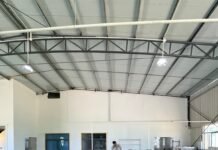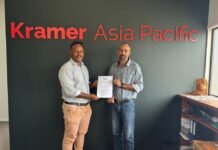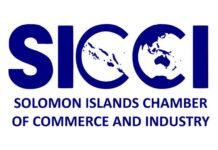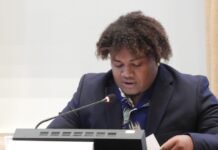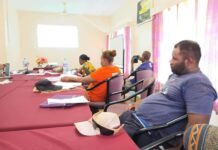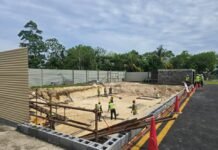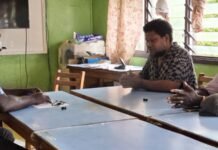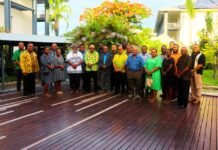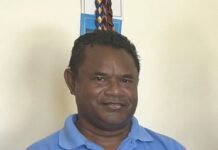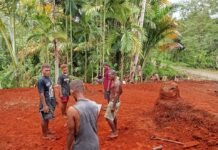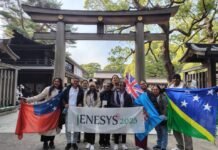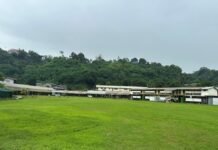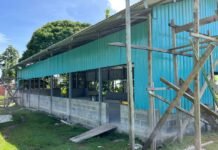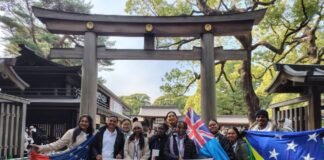BY MIKE TUA
THE media’s role in exposing corruption in the Pacific is not only limited by lack of access to credible information but also a risky business, journalists at this week’s pre-summit workshop that discusses the media’s role in investigating the management of public resources argued.
The journalists from around the Pacific region like Fiji, Palau, Solomon Islands, Tonga, and Vanuatu participated in the one-day discussion at the Heritage Park Hotel in Honiara on how to challenges of eradicating corruption regionally by exposing corrupt individuals, particularly public office holders in their respective countries.
They also discussed and shared information on the role of the media in investigating the management of public resources; gaps and alternative ways to access more information on the management of public resources and discussed loopholes in government’s anti-corruption agencies, and policies.
Tonga’s Broadcom 89.5FM General Manager, Katalina Tohi when taking into consideration the risks faced by Tongan journalists, said that journalists reporting on alleged corruption cases in private organizations that have established strong networks and mechanisms with the government have a high possibility of losing their jobs.

“If you are working for the organizations and businesses that are working together with government officials, you end up losing your job.
“Reporting on corruption is easy, but at the end of the day you have to feed your family and it is different in Tonga, not many jobs are available, and am sure the same thing goes here in the Solomon Islands.
“Because every time we go to meetings like this, they keep asking what you are talking in Tonga or what are you doing in the Solomon Islands but at the end of the day we end up reporting what can be reported but most corruptive stories are just left unreported and if you send news reporters (the young ones), they just come back with no stories,” she said.
However, the Development Policy Centre, Regional Communication Adviser, Sadhana Sen shared a different picture by praising the work of journalists who have braved themselves in reporting alleged corruption stories.
“I think as a media fraternity, we also need to celebrate the journalists who have to go beyond feeding their families and have lost jobs.
“We have few journalists in this room – and a few more in this summit.
“I heard Ofani Eremae was here and it just made me so proud to see Ofani joining Island Sun newspaper in Honiara.
“Ofani was the editor for Solomon Star and he lost his job. He is an old and reputable journalist, it just felt good that he stood up for what he believed in and he got his new job with Island Sun Newspaper.
“We need to also celebrate the journalists who will speak up – we need someone we have to look up to – we are here in this business for a reason….and we do celebrate the fact that within us, we do have people who say ok my children will eat dry biscuits for the next few months and you know but this is more important for the children of tomorrow.
“I know what it’s like since I had a fancy master’s degree and I went back and I had been told by development agencies that I had strong political views and they were too scared to hire me because they don’t want to upset the Fijian government.
“Well you know I had to say to the development agency that I am doing ok.
“We have those examples across the region and as a room full of journalists, I think we need to support each other when it’s tough,” she said.
Meanwhile, the newly elected President of the Pacific Anti-Corruption Journalist Network (PACJN), Kalafi Moala pointed out that it is very difficult to get hold of public information from the Tonga government.

“If one thing that is good in Tongan parliament that is bull s***.
“Our integrity bodies in Tonga are so corrupt and one of them is the ombudsman office in Tonga. While, the Tongan Government are good at delay tactics – delay delivering of reports.
“We need to have a common effort in the Pacific region to try and push for freedom of information Act or Transparency Act – it will make our job as journalists much easier in terms of getting information.
“For example, if you want information from the government and any branch of government you write to them – the Freedom of Information Act or Transparency Act gives you several days – it could be 7 or 14 days and they have to respond to that and so it will solve our common issue of trying to get information.
“I believe that if we as a media doing our job well in investigative journalism, we don’t need government information because most of the government information is given such formalities that it becomes useless information with so many words.
“And when you ask them questions, usually the responses are – who gave you that information and they don’t even tell you whether it’s true or not.
“But I think if we do our job well in terms of investigating, we will arrive at the truth or the facts and we will have the story.
“All we need from government is giving them a chance to respond,” he said.







